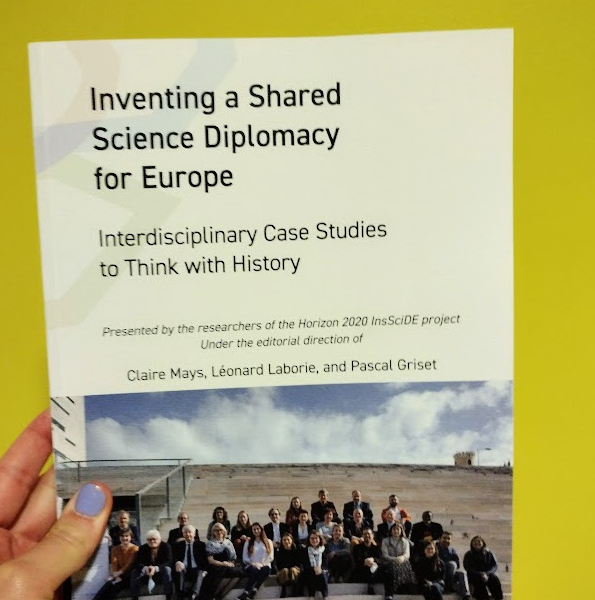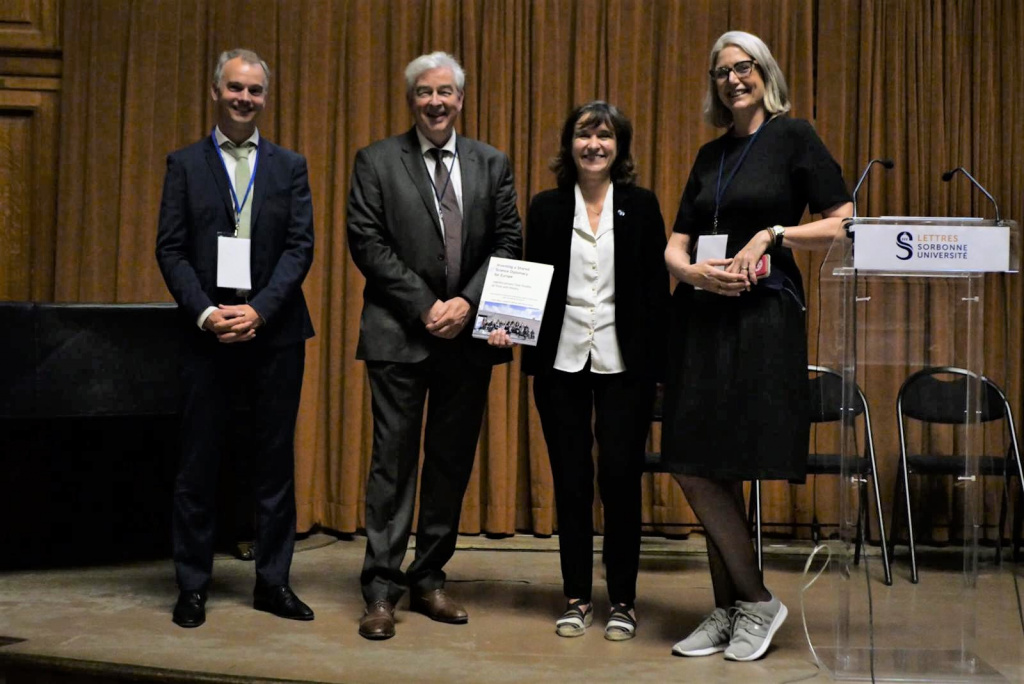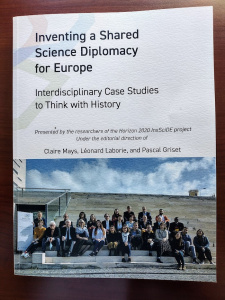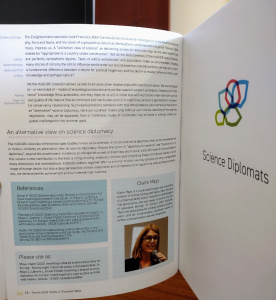InsSciDE’s concluding event marks launch of landmark science diplomacy book


The InsSciDE project is the last of three Horizon 2020 science diplomacy projects to reach its close in June 2022. At the end of June, InsSciDE hosted its concluding conference in Paris together with the EU Science Diplomacy Alliance. The event showcased project conclusions, discussed ongoing transformations in science and diplomacy such as open science and multilingualism, and plotted new actions and endeavours for the EU Science Diplomacy Alliance.
One major highlight of the conference was the launch of InsSciDE’s harmonized case study book, a landmark collection of historical, practical and theoretical insights into science diplomacy. It presents case studies as well as diverse reflections that illuminate the analyses conducted and conclusions drawn across the project’s four and a half years of research and activities.
Another notable outcome of the event was the transitioning Alliance chairship: from InsSciDE’s Claire Mays and Pascal Griset to Luk van Langenhove of UVB and Eric Piaget of UNU-CRIS. More details about the event, key takeaways and session recordings will follow! For now, please enjoy reading and learning from this unique in-depth anthology of science diplomacy knowledge.
The book is available as open access on Zenodo.
Inventing a shared science diplomacy for Europe: Interdisciplinary case studies to think with history
The H2020 InsSciDE project created a community of historians and archaeologists, science-technology-society scholars, political scientists, and communication and training specialists. Together we have illuminated how science diplomacy has taken shape and played out and could develop in Europe. Our case studies range across 250 years, several continents, and five thematic areas: heritage, health, security, environment and space. InsSciDE also looked at two cross-cutting themes: Power with science diplomacy, and the identities and practices of science diplomats themselves.
Our interdisciplinary collection of more than two dozen cases shows how science diplomacy springs from different sources. It is planned or unplanned, and sometimes perceptible only when looking back to track the processes and events set into motion by a dense multilevel field of competing desires and demands. Science diplomacy sometimes grew from the curiosity and ambition of scientist-explorers, or from pragmatic acts of managing transborder crisis. It emerged when actors at a diversity of levels each angled across time for a role and the power to foster scientific, national, or common-good objectives. We show how science diplomacy can happen without planning, and how it is sometimes the context and the product of great struggles: to define futures in the image of sociotechnical imaginaries; to rise in scientific and technological competence; to compete for primacy in innovation; to establish dominion, symbolic or territorial; to subvert and reconfigure geopolitical order; to defeat neo-colonialism and restore voice to a range of actors, human and non-human. We show how infrastructure such as data systems, or how social media, or how other diplomatic objects such as a research nuclear reactor or a space vehicle are enlisted, with or without success, to channel influence.
The book is available as open access on Zenodo.

